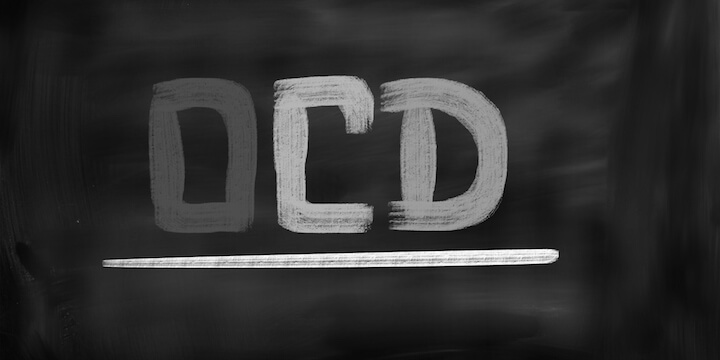Obsessive-Compulsive Disorder, better known as OCD, is an anxiety disorder where sufferers feel compelled to perform certain rituals or habits (compulsions) in order to suppress anxiety caused by recurring unwanted thoughts (obsessions).
OCD affects approximately 3 in 100 Australians and it can be very debilitating. Although people who suffer OCD use rituals to suppress their anxiety, without treatment, the anxiety can become more pervasive, and sufferers will conversely feel increasingly compelled to perform compulsive behaviours.
Many lay people make comments about having OCD because they are very clean and organised. However, it must be noted that there is a difference between clinical OCD patterns and self diagnosed forms. OCD sufferers can experience significant difficulties in numerous parts of everyday life, such as social interactions, work life, academic achievements and within relationships. Whilst those self-diagnosed OCD sufferers may feel frustrated or agitated when their preferences are not met, they do not need to perform compulsive actions in order to relieve their agitation.
Because OCD is characterised by both obsessions and compulsions there are various symptoms for both. Obsessive thoughts or fears are commonly related to:
- Fear of death
- Contamination/germs
- Self harm
- Harming others accidentally
- Imperfection
- Dangerous situations occurring
- Intrusive sexual thoughts
Common compulsions usually formed from obsessions include:
- Washing
- Cleaning
- Checking
- Touching
- Hoarding
- Counting
- Ordering/arranging/neatness/symmetry
The development of OCD is likely related to genetic factors; however, there are also environmental factors that influence the formation of specific obsessions or compulsions. Common aspects of one’s environment that are believed to shape the disorder include: social interactions, teasing and bullying, and negative views of objects or situations being passed on by family members.
Treatments for OCD
The most effective treatment method is Cognitive Behavioural Therapy (CBT). This treatment method is ideal for treating OCD because (as the name of the therapy suggests) it focuses on the interactions between cognitions and behaviour in maintaining a disorder. OCD, being comprised of obsessive thoughts (cognitions) and compulsions (behaviours), can be effectively treated by CBT. CBT for treating OCD involves exposing a person to the stimulus that leads them to feel anxious without retreating from the stimulus or using a compulsion to neutralise the anxiety. CBT is able to demonstrate over time that bad things will not happen if the rituals are not enacted, and in turn the anxiety the person feels will go away naturally, regardless of whether the stimulus is removed or not.
Another effective treatment that can be used with clients who have OCD is Acceptance and Commitment Therapy (ACT). This approach views anxiety as a normal part of life, so trying to avoid certain situations and people that may cause anxiety will only lead to frustration and unhappiness. This method, instead of trying to reduce the obsessive thoughts, tries to gain flexibility in thinking. Like CBT, ACT tries to expose the sufferer to the situation, but with the aim of assisting people in moving towards values and goals, rather than reducing symptoms.
Finding assistance
If you live in the Canberra region and you believe you may be experiencing difficulties with OCD, you can contact Strategic Psychology to arrange to see one of our psychologists. We can assist you to identify the issues that are contributing to maintaining your difficulties and recommend strategies that draw on your strengths in order to achieve optimal social, emotional and occupational functioning.
No referral is required in order to see one of our psychologists, however, you can contact your GP for a referral under Medicare (if eligible) to receive a rebate on services provided
